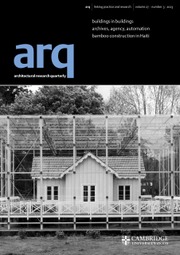Article contents
Interpretative communities as decisive agents: on pervasive digital technologies
Published online by Cambridge University Press: 12 November 2009
Extract
The emergence of computer-mediated social networking amplifies concepts of shared and diffused agency. It seems that much is accomplished not so much by individuals standing out against the crowd, but by crowds of people forming, re-forming, interacting and sharing through highly responsive electronic media. So-called ‘smart mobs’ are apparently capable of generating meaningful outcomes by collective action through mobile phones, social networks such as Facebook, and shared open-source enterprises as in open software development. Contemporary theorising in the fields of human-computer interaction and digital media promotes concepts of ubiquitous, egalitarian, democratic, grass-roots, collective agency above concepts of hierarchical, heroic and individual creation, a shift thought by some to challenge accepted ways of designing and occupying space.
- Type
- theory
- Information
- Copyright
- Copyright © Cambridge University Press 2009
- 4
- Cited by


